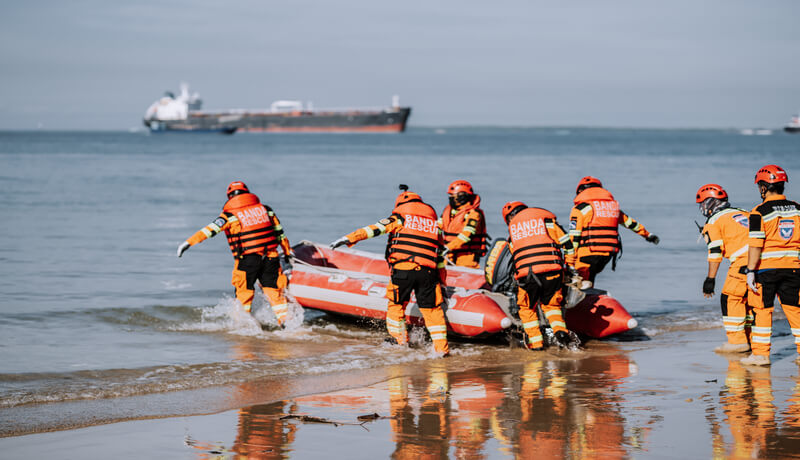Maritime Medics training
Introduction
For Maritime Medics, knowing how to give injections, perform intravenous (IV) infusions, and draw blood is essential. On a ship, where access to hospital facilities is often limited or delayed, these skills can save lives. Mastering needle-based techniques can make all the difference in an emergency. At the School of Maritime Medics, we provide comprehensive training that combines theory with hands-on practice. Our program prepares medics to confidently perform these procedures, ensuring the safety and well-being of crew members in maritime environments.
What are Injections, Infusions, and Blood Draws?
An injection delivers medication directly into the body through a needle, often into a muscle, vein, or under the skin.
An infusion administers fluids or medication into a vein over an extended period through an IV.
Blood drawing, also called phlebotomy, uses a needle to extract blood from a vein for testing or other purposes.
These methods are essential for providing treatments and diagnosing health issues.
The Scope of Needle-Based Training
Our training covers a wide range of needle-based skills, focusing on three core areas necessary for medical care at sea. Each area builds both competence and confidence in Maritime Medics.
Accessing Subcutaneous Areas
Medics need to skillfully access the skin, subcutaneous tissue, and muscles for injecting medications or fluids. This part of the training includes:
- Administering intravenous (IV), intramuscular (IM), and subcutaneous (SC) injections accurately and safely.
- Using proper aseptic techniques to reduce infection risks during procedures.
- Identifying the right anatomical landmarks to deliver medications effectively and safely.
Catheter Placement in Vessels
In emergencies, medics often need to place IV catheters quickly to administer fluids or medications. This skill is crucial for treating patients who are dehydrated or in shock. Medics learn to:
- Insert IV catheters into peripheral veins accurately.
- Follow sterile handling protocols to prevent infection.
- Address challenges like finding veins in patients with difficult venous access.
Handling Injectable Medications and Solutions
Properly handling medications is essential for all Maritime Medics. Understanding medication usage, dosage, and preparation ensures patient safety and treatment effectiveness. During training, participants learn to:
- Verify drug names, concentrations, and allowed routes of administration (IV, IM, or SC).
- Safely use diluents to prepare medications and mix solutions, like saline or other infusion fluids.
- Handle injection equipment accurately, maintaining the correct dosage and avoiding contamination.
Familiarization with Infusion Devices
Besides injections, administering IV infusions is a key duty for medics on board. Training covers infusion devices, enabling medics to manage IV therapies efficiently. This part of the course covers:
- Using microdrip sets to control fluid delivery rates precisely.
- Working with three-way stopcocks and extensions for administering medications from multiple sources.
- Monitoring infusion rates and ensuring correct fluid volumes, especially during long IV therapies.
The Importance of Aseptic Technique
To prevent infections, medics use strict aseptic techniques during needle-based procedures. The course emphasizes:
- Disinfecting the skin before injections, catheter placements, or blood draws.
- Using sterile techniques to handle needles, syringes, and medication vials.
- Disposing of sharps and contaminated items safely to reduce injury or infection risks.
Practical, Hands-On Training
The School of Maritime Medics emphasizes practical experience. Participants practice their skills on models and simulated patients throughout the program. This hands-on training builds the confidence and dexterity needed to perform these procedures effectively in real-life maritime settings. Training includes:
- Practicing IV catheter insertion, injections, and blood draws in multiple sessions.
- Engaging in realistic scenarios to simulate the challenges of performing these procedures under pressure.
- Preparing and administering injectable medications to ensure medics are competent in managing drug dosages and delivery methods.
Conclusion: Essential Skills for Maritime Medical Care
By the end of our training, Maritime Medics master the skills of administering injections, performing IV infusions, and conducting blood draws. These capabilities are crucial for providing effective care at sea, where every second counts in emergencies. The School of Maritime Medics ensures that each participant gains a solid understanding of these procedures through hands-on experience, enabling them to act with confidence in any medical situation.
For maritime companies, investing in comprehensive medic training strengthens onboard healthcare, reduces costly medical evacuations, and, most importantly, protects crew health and safety during long journeys. With these skills, medics are prepared to handle any medical situation at sea, ensuring a safer environment for everyone on board.
For more information please contact us by clicking here.
Maritime Medics training


